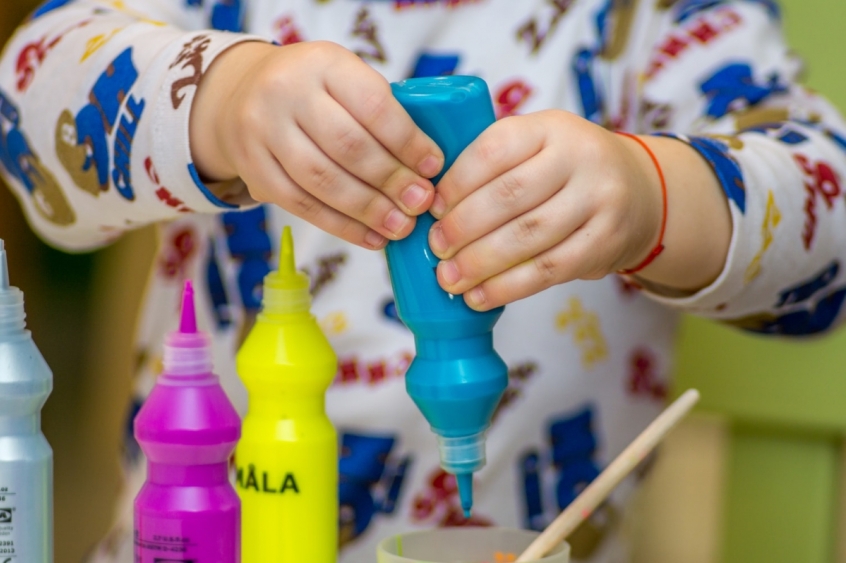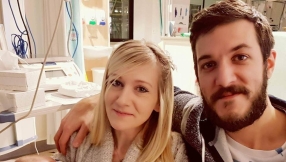
An anxious mum recently reached out for some advice: 'My daughter, aged 10, wants to be a pop star when she grows up, but she is a really bad singer – she just can't sing in tune! Earlier this year she asked me if she could try for Britain's Got Talent. I said no, but she went on and on about it until I gave in, just to keep her quiet. I honestly thought there was no chance she'd get through, but I've just found out she's gone and got an audition! Should I take her to it, knowing that she'll be disappointed? I hate the thought of lying to her, but maybe it's best to protect her and not even tell her about the audition. What do I do? Help!'
While I have a huge amount of sympathy for this mum and every bit of me would want to protect the fragile sensitivities of a 10-year old, we do our children no favours if we fail to help them develop a realistic view of themselves and of life (and the honest truth is that this mum should probably have dissuaded her daughter from entering in the first place).
The belief that 'I have to be extraordinary' is a major driver of anxiety and one of the main factors affecting children's wellbeing. Having been sold the lie that they can be and do anything, is it any wonder that so many young people report feeling depressed and anxious when no one presses the golden buzzer for them? When life itself delivers the verdict that they aren't quite so extraordinary after all?
Our children are growing up in a culture of entitlement where talent shows, TikTok videos and Instagram reels turn the ordinary into the extraordinary every day of the week. Singing, dancing, cooking, baking and even falling in love have become a national competition, a spectator sport with winners and losers. So perhaps it's no surprise that children feel under pressure to do something special and stand out from the crowd, not just in relation to schoolwork or sports, but in every area of life. The irony, of course, is that the very nature of being extraordinary means it's not possible for everyone.
Our ability to embrace and accept reality, with all its limitations and disappointments, is at the heart of emotional wellbeing. And as parents, one of the most important messages we can give our children is that it's OK to be ordinary.
Maybe some of the pressures on young people to be extraordinary come from the fact that culture has framed an 'ordinary' life as dull and unfulfilling. However, as parents, we have the opportunity to step in and change that narrative. We can help them recognize that ordinary is not about settling for a boring second-best; it is about embracing reality, making the most of every opportunity and becoming the best 'me' we can be.
But let's not throw the baby out with the bathwater. The book of Proverbs says that our words have the power of life and death – and speaking life-giving, encouraging affirming words to our children plays a vital part in building their emotional wellbeing. So how do we get the right balance in all of this? The key is in how we praise. Rather than showering them with applause for anything and everything, they respond best when the praise is specific and they have done something to earn it. Having good self-esteem is not about knowing you are perfect but about knowing you are good enough.
The life-sapping pressures on our children to prove themselves to be special and extraordinary is something that we, as parents, can work hard to lift from their shoulders. We can remind them that they are 'fearfully and wonderfully made' (Psalm 139:14) and that they can lay down striving to prove their worth in the knowledge that they have a Father in heaven who loves them unconditionally and gives their life meaning and purpose. And we can help them have a realistic view of themselves by encouraging them to both celebrate their God-given strengths and know and manage their weaknesses.
In his bestselling book The Boy, The Mole, The Fox and The Horse, Charlie Mackesy uses a simple story and a series of beautiful ink drawings to convey deep truths about the human heart and things that are really important in life. One of my favourites is his picture of the boy sitting close to the fox with the horse standing nearby. 'What's your best discovery?' asks the mole, looking up at the boy. 'That I'm enough as I am,' the boy replies.
We can help our children make that 'best discovery' for themselves. We want them to know deep down that whatever messages they may hear to the contrary, 'I am enough.' It really is OK to be ordinary.
Katharine Hill is the UK Director of national charity Care for the Family and a popular speaker, author and broadcaster. She leads on Care for the Family's policy agenda at government level, and has practised as a solicitor, specialising in family law. Katharine is married to Richard and they have four grown-up children and two grandchildren. Her new book A Mind Of Their Own: Building Your Child's Emotional Wellbeing in a Post-Pandemic World is out now priced £12.99.













